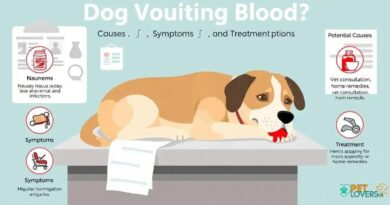O que é Má alimentação
What is Malnutrition in Dogs?
Malnutrition in dogs refers to an imbalance in their diet, where they either do not receive enough nutrients or consume excessive amounts of certain substances. This condition can lead to serious health issues, affecting a dog’s overall well-being and longevity. Understanding what constitutes malnutrition is crucial for dog owners who want to ensure their pets lead healthy lives.
Types of Malnutrition
There are two primary types of malnutrition that can affect dogs: undernutrition and overnutrition. Undernutrition occurs when a dog does not receive sufficient calories or essential nutrients, leading to weight loss, weakness, and a compromised immune system. On the other hand, overnutrition happens when a dog consumes too many calories or an unbalanced diet, which can result in obesity and related health problems.
Causes of Malnutrition
Malnutrition can stem from various causes, including poor-quality dog food, feeding inappropriate human foods, or failing to adjust a dog’s diet according to their life stage or health condition. Additionally, certain medical conditions, such as gastrointestinal disorders or dental issues, can hinder a dog’s ability to absorb nutrients effectively, leading to malnutrition.
Signs of Malnutrition
Recognizing the signs of malnutrition in dogs is essential for prompt intervention. Common indicators include significant weight loss, lethargy, dull coat, and changes in appetite. Dogs may also exhibit behavioral changes, such as increased irritability or decreased interest in play. Regular veterinary check-ups can help identify these signs early on.
Impact of Malnutrition on Health
The impact of malnutrition on a dog’s health can be profound. Undernourished dogs may experience stunted growth, weakened bones, and a higher susceptibility to infections. Conversely, overnourished dogs are at risk for obesity-related conditions, such as diabetes, heart disease, and joint problems. Both forms of malnutrition can significantly reduce a dog’s quality of life.
Preventing Malnutrition
Preventing malnutrition in dogs involves providing a balanced diet that meets their specific nutritional needs. Pet owners should choose high-quality dog food formulated for their dog’s age, size, and activity level. Consulting with a veterinarian can help determine the best dietary plan and ensure that any health issues are addressed promptly.
Role of Supplements
In some cases, dietary supplements may be necessary to address specific nutritional deficiencies in dogs. Omega-3 fatty acids, vitamins, and minerals can support overall health and help combat malnutrition. However, supplements should only be administered under the guidance of a veterinarian to avoid potential overdoses or imbalances.
Feeding Practices to Avoid
Certain feeding practices can contribute to malnutrition in dogs. For instance, feeding table scraps or a diet high in processed foods can lead to nutritional imbalances. Additionally, free-feeding, where food is available at all times, may result in overeating or under-eating, depending on the dog’s behavior. Establishing a regular feeding schedule with appropriate portion sizes is essential.
Consulting a Veterinarian
If you suspect your dog may be suffering from malnutrition, consulting a veterinarian is crucial. A vet can perform a thorough examination, recommend dietary changes, and provide guidance on proper nutrition. Early intervention can prevent further health complications and ensure your dog receives the care they need for a healthy life.



